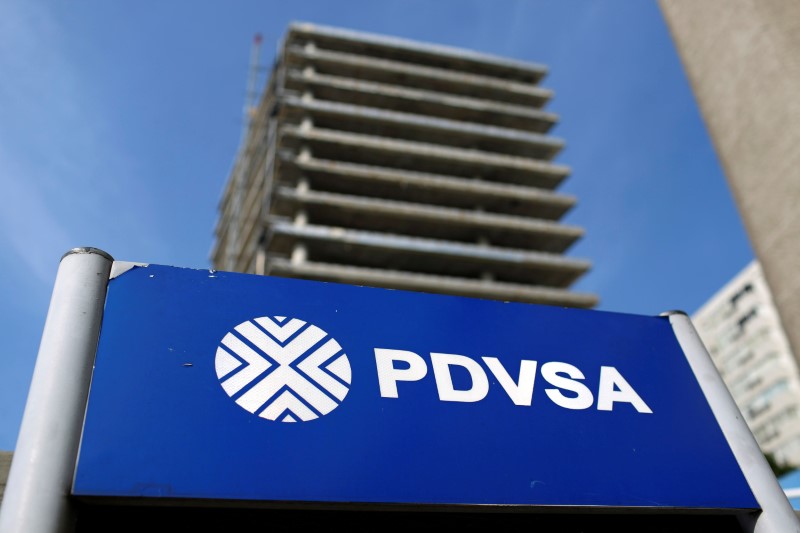By Nidhi Verma
NEW DELHI (Reuters) - Venezuelan state oil-firm PDVSA has not made debt payments to India's top oil producer ONGC (NS:ONGC) for six months, and has previously used a Russian state-owned bank and another Indian energy company as intermediaries to make payments, two sources familiar with the transactions said on Wednesday.
ONGC Videsh, the overseas investment arm of ONGC, confirmed that PDVSA had fallen behind on the payments, but declined to give details on the delays.
"They have got certain challenges at this stage," ONGC Videsh said in an emailed response to Reuters' questions. "They have assured that they are working on it (payment of dues). In due course it will be settled and follow up steps will be undertaken."
"We have a good working relationship with PDVSA," ONGC said.
PDVSA declined to comment.
But the two sources, who requested anonymity, said PDVSA has made no payment since April on what was a $540 million backlog of dividends owed to ONGC for an investment the Indian firm made in a an energy project in Venezuela.
Venezuela's President Nicolas Maduro said last week that the country planned to restructure some $60 billion of bonds, much of it held by PDVSA, as the country struggles to meet debt repayments.
The OPEC member's economy has collapsed since global oil prices plummeted in 2014. Venezuela depends on oil for more than 90 percent of export revenue.
PDVSA has delayed a range of payments, such as for oil services and supplies, as Caracas uses the scant dollar supplies available to make sovereign debt repayments.
LATE PAYMENTS, SANCTIONS
International banks and suppliers have reduced or halted credit to PDVSA since cash flow problems led the firm to start delaying payments to creditors in 2014. U.S. sanctions against Venezuelan officials including PDVSA executives, have also deterred banks from offering credit.
Maduro's government has increasingly turned to ally Russia for the cash and credit it needs to survive, according to a Reuters special report published in August.
Russia's state-run Gazprombank in January cleared a payment of $19.75 million of Venezuela's pending dues to ONGC, the two sources said. Details of the payment and Gazprombank's involvement have not previously been published.
India's Reliance Industries Ltd (NS:RELI), owner of the world's biggest refining complex and one of PDVSA's biggest oil buyers, paid $68.66 million to ONGC on behalf of PDVSA in April, the sources said.
Gazprombank and Reliance did not respond to Reuters' requests for comment.
PDVSA and ONGC Videsh Ltd last year signed a deal for PDVSA to pay the debt by assigning the Indian firm 17,000 barrels per day of oil. Under the agreement, PDVSA sells the oil on behalf of ONGC and sends the cash to the Indian company.
ONGC cannot take delivery of the oil because its Mangalore refinery is unable to process Venezuela's heavy crude.
Venezuela has often used oil to repay debt: it owes billions of dollars to both Russia and China and is paying both with oil.
Many multinational firms have written off their Venezuelan operations and investments, but ONGC is aiming to expand in the South American country.
The Indian firm is seeking to raise funding for Venezuela's San Cristobal oil project, in which the Indian company has a 40 percent stake. PDVSA and ONGC aim to raise oil output from the project to about 27,000 bpd from 18,000 bpd.
